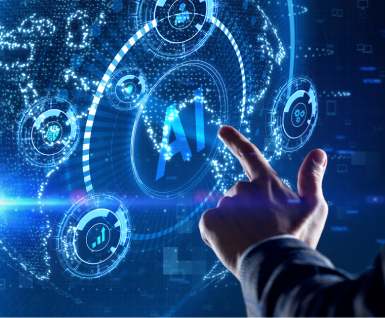Table of Contents
- Introduction
- Understanding AI’s Role in Business
- Key Transformative Changes Driven by AI
- Enhanced Decision-Making
- Automation of Routine Tasks
- Personalized Customer Experiences
- Predictive Analytics for Market Trends
- Challenges and Considerations
- FAQs
- Summary
- Conclusion
1. Introduction
Artificial Intelligence (AI) is revolutionizing the business landscape. This technology, which includes machine learning, natural language processing, and robotics, is enabling businesses to operate more efficiently and effectively. In this blog post, we explore the profound impact AI is having on businesses and how it will continue to drive transformative changes in the future.
2. Understanding AI’s Role in Business
AI encompasses a range of technologies designed to mimic human intelligence. According to a report by McKinsey Global Institute, AI could potentially deliver additional global economic activity of around $13 trillion by 2030, boosting global GDP by about 1.2% per year.
Quote: “AI will likely transform all industries by enabling new business models, improving productivity, and fostering innovation.” — Andrew Ng, Co-founder of Google Brain
3. Key Transformative Changes Driven by AI
Enhanced Decision-Making
AI’s ability to analyze vast amounts of data in real-time provides businesses with actionable insights, enabling better decision-making. By identifying patterns and trends that humans might miss, AI helps companies make informed decisions swiftly and accurately.
Research Insight: According to a survey by Deloitte, 82% of early AI adopters saw a positive return on their investment, with many reporting significant improvements in decision-making speed and quality.
Automation of Routine Tasks
AI-powered automation tools are streamlining business processes by handling repetitive tasks such as data entry, customer support, and inventory management. This not only reduces operational costs but also frees up employees to focus on higher-value activities.
Quote: “Automation through AI is revolutionizing the workforce by taking over mundane tasks and allowing humans to engage in more creative and strategic work.” — Sundar Pichai, CEO of Alphabet Inc.
Personalized Customer Experiences
AI enables businesses to deliver personalized experiences at scale. Through advanced analytics and machine learning algorithms, companies can understand individual customer preferences and tailor their offerings accordingly. This leads to higher customer satisfaction and loyalty.
Research Insight: A study by Accenture found that 91% of consumers are more likely to shop with brands that provide relevant offers and recommendations, underscoring the importance of personalization in driving customer engagement.
Predictive Analytics for Market Trends
AI’s predictive capabilities allow businesses to anticipate market trends and consumer behavior. By leveraging big data and predictive analytics, companies can proactively adapt their strategies to stay ahead of the competition.
Quote: “Predictive analytics powered by AI is transforming the way businesses operate, making them more agile and responsive to market changes.” — Bernard Marr, Futurist and Author
4. Challenges and Considerations
While the benefits of AI are substantial, businesses must also navigate challenges such as data privacy, ethical concerns, and the need for significant investment in technology and skills development. Ensuring transparency and addressing biases in AI algorithms are critical to building trust and maximizing the positive impact of AI.
Research Insight: The World Economic Forum emphasizes the importance of ethical AI, advocating for frameworks that ensure AI systems are fair, transparent, and accountable.
5. FAQs
Q: What is AI and how does it impact businesses? A: AI, or Artificial Intelligence, encompasses technologies like machine learning and natural language processing that mimic human intelligence. It impacts businesses by improving decision-making, automating tasks, personalizing customer experiences, and predicting market trends.
Q: How can AI enhance decision-making in businesses? A: AI analyzes vast amounts of data in real-time to provide actionable insights, enabling businesses to make informed and swift decisions by identifying patterns and trends that humans might miss.
Q: What are the key benefits of AI automation in business processes? A: AI automation reduces operational costs by handling repetitive tasks such as data entry and customer support, freeing up employees to focus on higher-value activities.
Q: How does AI contribute to personalized customer experiences? A: AI uses advanced analytics and machine learning to understand individual customer preferences, allowing businesses to tailor their offerings and deliver personalized experiences at scale.
6. Summary
AI is driving transformative changes across businesses by enhancing decision-making, automating routine tasks, delivering personalized customer experiences, and providing predictive insights. While challenges such as data privacy and ethical considerations exist, the benefits of AI far outweigh these concerns.
7. Conclusion
The impact of AI on business is profound and far-reaching. By strategically investing in and adopting AI technologies, businesses can achieve sustainable growth and innovation. Those that embrace AI will be well-positioned to lead in the digital age.

